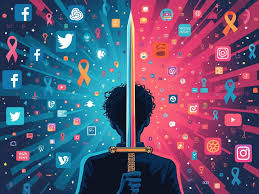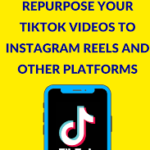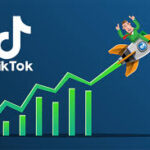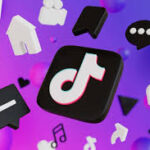The Double-Edged Sword of Social Media: How It Shapes Mental Health, Relationships, and Society

Social media has fundamentally transformed the way we connect, communicate, and consume information. From Facebook and Instagram to TikTok, Twitter (X), and Threads, billions of people across the globe engage with social platforms daily. These platforms have revolutionized access to information, enabled global conversations, and created new economic opportunities.
However, as powerful and pervasive as social media is, it also presents serious challenges — especially in terms of mental health, personal relationships, attention span, and societal well-being. This article explores the benefits and drawbacks of social media, highlighting how it can both empower and harm, depending on how it’s used.
“Beat the Pressure: A Comprehensive Guide to Lowering Blood Pressure Naturally.”
Buy book from Gumroad or Paystack
🌍 The Positive Side of Social Media
1. Connection Across Borders
Social media bridges geographical distances, allowing people to stay in touch with friends, family, and professional networks worldwide. Whether it’s a video call, photo post, or group message, platforms like WhatsApp, Instagram, and Facebook make communication instant and effortless.
2. Amplification of Voices
Marginalized communities now have platforms to share their stories and mobilize support. Movements like #BlackLivesMatter, #EndSARS, and #MeToo gained global traction through social media.
3. Access to Information
Social media is a real-time news source. Users can stay informed about global events, scientific breakthroughs, health alerts, or political developments — often faster than traditional media outlets.
4. Economic and Career Opportunities
Social media has birthed new industries: influencers, digital marketing, social commerce, and remote freelancing. Platforms like LinkedIn, YouTube, and TikTok have enabled users to monetize their skills, grow brands, and even launch entire businesses.
5. Educational Tools and Communities
From YouTube tutorials to TikTok study hacks and Instagram live Q&As, social media offers endless learning resources. Online communities also offer peer support for students, professionals, and hobbyists.
😟 The Dark Side of Social Media
1. Mental Health Concerns
Excessive use of social media has been linked to:
- Anxiety and depression (due to comparison, cyberbullying, or isolation)
- Low self-esteem, especially among teenagers
- Addictive behavior, with dopamine-driven feedback loops from likes, comments, and notifications
- Sleep disruption, often caused by late-night scrolling or blue light exposure
2. Social Comparison and the “Highlight Reel” Effect
Users often compare their lives to others’ carefully curated highlights. Seeing influencers, peers, or celebrities portraying perfect lifestyles can lead to feelings of inadequacy, envy, and decreased life satisfaction.
3. Cyberbullying and Harassment
Anonymity and lack of regulation on some platforms encourage online abuse, especially toward women, minority groups, and public figures. Victims of cyberbullying often experience severe emotional trauma.
4. Reduced Real-Life Social Skills
Over-reliance on digital communication can erode face-to-face interaction abilities. People may struggle with empathy, active listening, or maintaining deep, meaningful relationships offline.
5. Spread of Misinformation and Polarization
Social media algorithms favor engagement over accuracy, often amplifying controversial, misleading, or outright false information. This has contributed to:
- Vaccine skepticism
- Political extremism
- Conspiracy theories
- Social division
6. Privacy Erosion
Users often unknowingly give away personal data. Social media companies collect, track, and monetize user behavior — raising concerns about surveillance, data breaches, and manipulation.
📊 The Science Behind It: Why Social Media Is So Addictive
- Dopamine Loop: Every like, share, or notification triggers a hit of dopamine — the brain’s “feel good” chemical. This keeps users coming back for more.
- Variable Rewards: Like slot machines, social media delivers unpredictable rewards (likes/comments), which increases user engagement.
- Fear of Missing Out (FOMO): Seeing others enjoy life creates a compulsive urge to stay online and not be left out.
👨👩👧👦 Social Media and Relationships
- Pros: Easier to stay in touch, share moments, and find like-minded communities.
- Cons: Distracted communication, jealousy in relationships (e.g., “likes” from exes), and unhealthy comparisons with other couples or families.
✅ Healthy Habits for Social Media Use
To enjoy the benefits of social media while minimizing harm:
- Set Time Limits
Use tools like screen time apps or platform settings to restrict daily use. - Curate Your Feed
Follow accounts that inspire, educate, or uplift you. Unfollow toxic or overly curated profiles. - Practice Digital Detoxes
Take regular breaks to reconnect with the real world. - Be Mindful of Your Emotions
If scrolling leaves you feeling anxious, envious, or sad, pause and reflect. - Engage Authentically
Comment meaningfully, share honest experiences, and avoid shallow validation-seeking. - Protect Your Privacy
Review your privacy settings and avoid oversharing personal information.
🧠 Final Thoughts
Social media is a powerful tool — and like any tool, its value depends on how it’s used. It can empower, connect, and uplift, but it can also damage, divide, and distract. As individuals and as a society, we must become conscious consumers of social media, learning to take control rather than be controlled by it.
In the end, balance is the key. Use social media with intention, not impulse — and remember to live life more offline than online.
💔 “She said she loved me. And for fifty-two years, I believed her.” 💔
Buy The Book "The Longest Lie: A Husband’s Journey Through Love, Betrayal, and Redemption" From Gumroad






